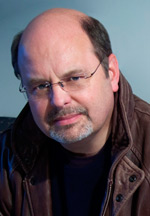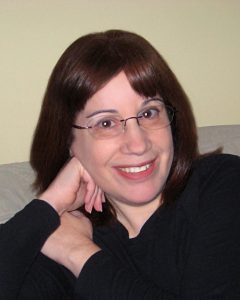 John Gilstrap is the New York Times bestselling author of nine thrillers, the latest of which is Damage Control. His previous books include Threat Warning, Hostage Zero, No Mercy, Six Minutes to Freedom, Scott Free, Even Steven, At All Costs, and Nathan’s Run; four have been Literary Guild selections. His novels have been translated into more than 20 languages.
John Gilstrap is the New York Times bestselling author of nine thrillers, the latest of which is Damage Control. His previous books include Threat Warning, Hostage Zero, No Mercy, Six Minutes to Freedom, Scott Free, Even Steven, At All Costs, and Nathan’s Run; four have been Literary Guild selections. His novels have been translated into more than 20 languages.
For MWW13, John will present “Writing Commercial Fiction,” as well as sessions on writing a series and suspense writing. MWW committee member Cathy Shouse interviewed John about his MWW appearances and his writing career.
Q. How many times have you been on the MWW faculty? Any special memories you’d like to share? Mine would be MWW 2010 when you and Marcus Sakey did a rowdy, memorable “secrets to getting published” session. Finally, how has being on MWW faculty impacted your career?
MWW is one of my favorite conferences. How many have I been to? At least three, I think, but there might have been a fourth a long time ago. (That would actually make it the first, wouldn’t it? Ah, well . . .)
I agree that that session with Marcus was a highlight. Not just because he’s a great guy and a brilliant writer, but because the entire session was ad-libbed. The writer he was originally paired with that day suffered a family emergency and had to back out at the last minute. I was asked to pinch-hit, and was more than happy to step in. The timing was such, though, that Marcus and I had no time to compare notes or choreograph anything. Since we’re both comfortable in front of an audience, we decided to wing it, and it ended up going really, really well.
Truthfully, I enjoy every aspect of the conference, from teaching the sessions to critiquing manuscripts.
Q. As a New York Times Bestselling author, you must have had many high points in your career. What’s been your favorite award/recognition/memory?
Probably my most significant pinch-me moment came when my family and I were invited to Dino DeLaurentiis’s 80th birthday party on the Isle of Capri in Italy. There we were on Dino’s boat on a beautiful day, swimming off the side in the Mediterranean. That was pretty special. Most special of all, of course–and I think this is probably true of most novelists–is that first phone call telling me that my agent had sold my first book. It felt every bit like the new beginning that it turned out to be.
Q. Catch us up with the latest– what you’re working on now, releases, etc.
HIGH TREASON, the fifth book in my Jonathan Grave series will come out next summer, and right now, I am working on two projects within the same series. One is the sixth book, as yet untitled, and barely even plotted, but first there’ll be an e-book novella that will chronicle how Jonathan Grave and Irene Rivers–the director of the FBI in the series–first met.
Q. What are some advantages for pre-published and published authors to attend conferences? How did conferences influence your writing, if you attended any before publication?
I didn’t even know there were such things as writers’ conferences when I was penning the book that became NATHAN’S RUN. Having been in the biz now for over 15 years, I think that conferences can be extremely valuable to writers of all stripes and at all stages in their careers. The trick to learning from sessions and panels is to listen with an open yet skeptical mind. This is a creative business, which by definition means that there are no rules for storytelling. What works for me may have no value to another writer, because we all sift our stories through the filters of our own imaginations. It’s important to take from any session that which resonates, and to feel free to reject that which does not resonate.
From the business side of writing (as opposed to the artistic side), the best value comes from time around the bar. Like any other industry, this is a business of networking and contacts. All else being equal, the chances of success increase dramatically with each new contact you make.
Q. One year, you shared with our attendees the downside of getting a large advance. How do insider tips and knowledge of how publishing works help a writer?
Quoting from that cinematic masterpiece, ANIMAL HOUSE, “Knowledge is Good.” Many new writers make the mistake of believing that their aspirations begin and end with the creation of a work. The reality is that our little corner of the entertainment business is exactly that–a business. It makes no more sense to enter into a book contract without knowing about the publishing industry than it would to open a restaurant without researching the food service industry. Authors walk into traps every day–willingly, it seems–with their eyes closed. Standard book contracts are predatory and awful. It takes a good agent or a lawyer to cut through the crap to give the author a chance of success.
I advise writers to assume that their novel is their million-dollar retirement plan, and to perform all the due diligence research for a book sale that they would do to invest in any other business.
Q. Is there something about a writing career that you wish you had known sooner?
I was surprised how isolating it is. Not only is a book produced in solitude, there are precious few people in any one community to talk to about it. In fact, more than a few people are put off by the fact of one’s being a professional writer. At one level, I think that everyone believes they could write a book if only they could carve out the time to do so. It’s not until they give it a shot that they realize how damn difficult it can be. Eight years ago, I became so frustrated by the isolation that I went back to a high-pressure day job. To date, I am the only artist I know who walked away from full-time writing to go back to the daily grind. Curiously, I’m more prolific as a part-time author than I ever was a full-time author. Go figure.
Q. Is there anything you would like to add?
Just that I’m looking forward to another July in Muncie!
****
John’s quote from MWW 2010…”Over the years, I’ve participated in more conferences than I can count, but time after time, Midwest Writers Workshop ranks among the best of the best. The students are anxious to learn, the faculty comes to teach, and the result is electrifying. Anytime you want me back, just say the word, and I’m there.”
DID YOU KNOW??
John’s first Jonathan Grave novel, No Mercy, mentions Muncie, Indiana??
Jonathan Grave has an extraordinary job. He covertly rescues people. Moreover, he operates under his own system of justice. He does not go out of his way to abuse or kill people, but when he deems it necessary he does so without qualms. He does not so much operate in defiance of the police but rather, since his objectives are different, outside it. If it is necessary for some people to die in order that those objectives be fulfilled so be it.
For his services Jonathan is well paid. He has some military experience which is useful in developing rescue plans and he has connections which allow him to literally fly beneath the radar. He has handpicked his assistants, most notably, Venice (pronounced Ven EE chay) Alexander whose computer skills know no limit.
In this endeavor, Jonathan has been hired to find and rescue Thomas Hughes, the college age son of Stephenson Hughes. Thomas was abducted from his girlfriend’s home in Muncie, Indiana.



